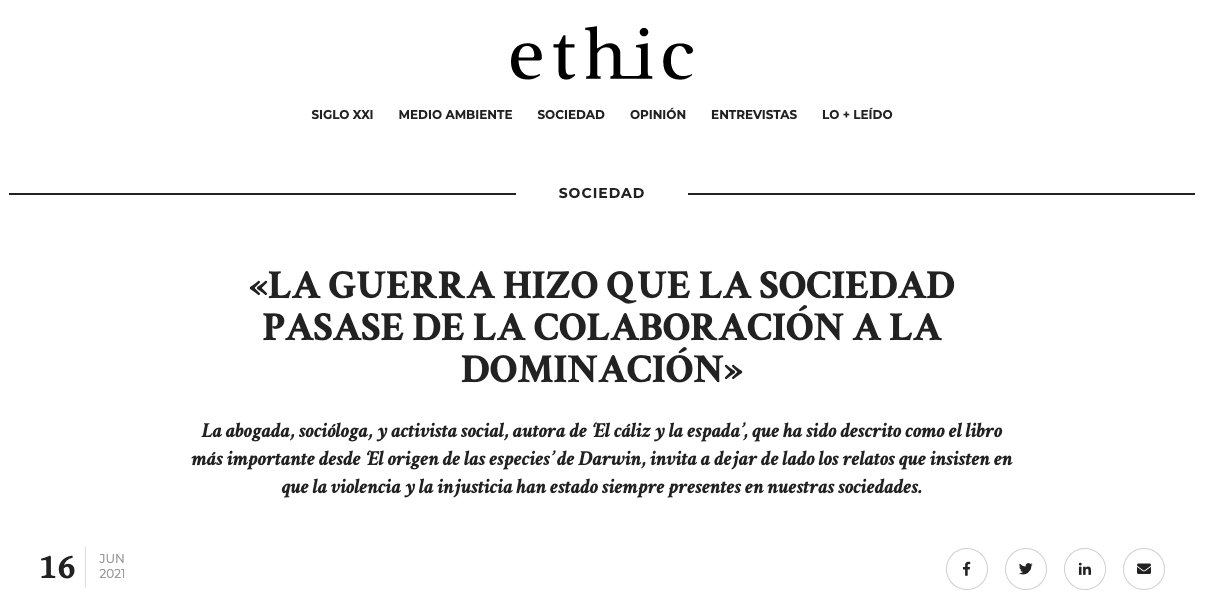June 16, 2021
Riane Eisler's The Chalice and The Blade, or El Cáliz y la Espada, has been reissued in Spain, thirty years after its first Spanish print edition. Spanish journalist, Lula Gómez interviewed Riane Eisler for an article in spanish titled "La Guerra Hizo Que :a Sociedad Pasase de la Colaboración a la Dominación" or "How War Made Society Go from Collaboration to Domination", for Spanish magazine Ethic.

Gómez asks Eisler to elaborate on the scientific evidence affirming that humanity once lived in societies of cooperation and collaboration without oppressive relations between the sexes or classes.
Eisler responds with her metaphor of the chalice and the blade.
En el libro explico cómo la raíz del problema radica en un sistema social en el que el poder de la espada, el del hombre, el poderoso, se idealiza y oculta otros sistemas de colaboración que estuvieron vigentes durante milenios. Pasamos de un orden social apoyado en el cáliz, años de paz, a uno apoyado en la fuerza, en las sociedades patriarcales, violentas y desiguales. La historia se ha contado y estudiado sólo desde un ángulo. Porque a pesar de que la humanidad está formada por dos mitades, hombres y mujeres, en la mayoría de los estudios el protagonista, y muchas veces, el único actor, ha sido el hombre.
Hay que considerar también que los sistemas de dominación creados premian mundos artificiales de economías que venden armas y desprecian la capacidad humana, los cuidados, el apoyo, la educación. Tenemos que repetir que la guerra fue un instrumento esencial a la hora de cambiar la sociedad que pasó, en un momento dado, de la colaboración a la dominación. No siempre fue así: hace unos 5.000 años la humanidad cambió y tomó ese giro de vivir en unas comunidades agrícolas y pacíficas a otras violentas.
The root of the problem lies in a social system in which the power of the sword, that of man, the powerful, is idealized and conceals other collaboration systems that were in force for millennia. We went from a social order supported by the chalice, years of peace, to one supported by force, in patriarchal, violent and unequal societies.
The story has been told and studied only from one angle. Because despite the fact that humanity is made up of two halves, men and women, in most studies the protagonist, and many times, the only actor, has been the man.
We must also consider that the systems of domination created reward artificial worlds of economies that sell weapons and despise human capacity, care, support, education. We have to repeat that the war was an essential instrument when it came to changing the society that went, at a given moment, from collaboration to domination. It was not always like this: some 5,000 years ago humanity changed and took that turn from living in peaceful agricultural communities to violent ones."
Read the entire article in Spanish here.
See also: Covid-19 & Gender Inequality: The Differences Compared to Other Crises



Leave a Reply